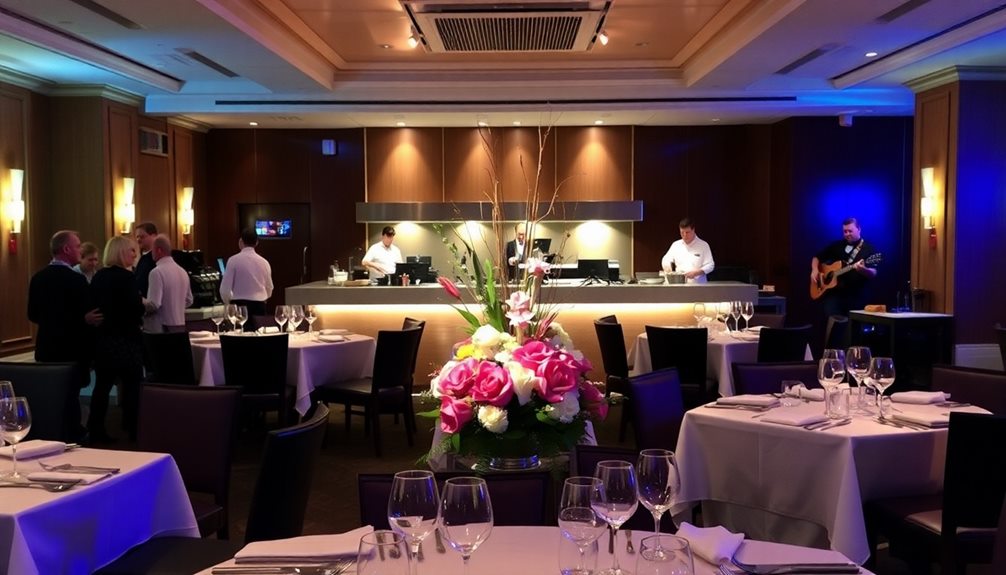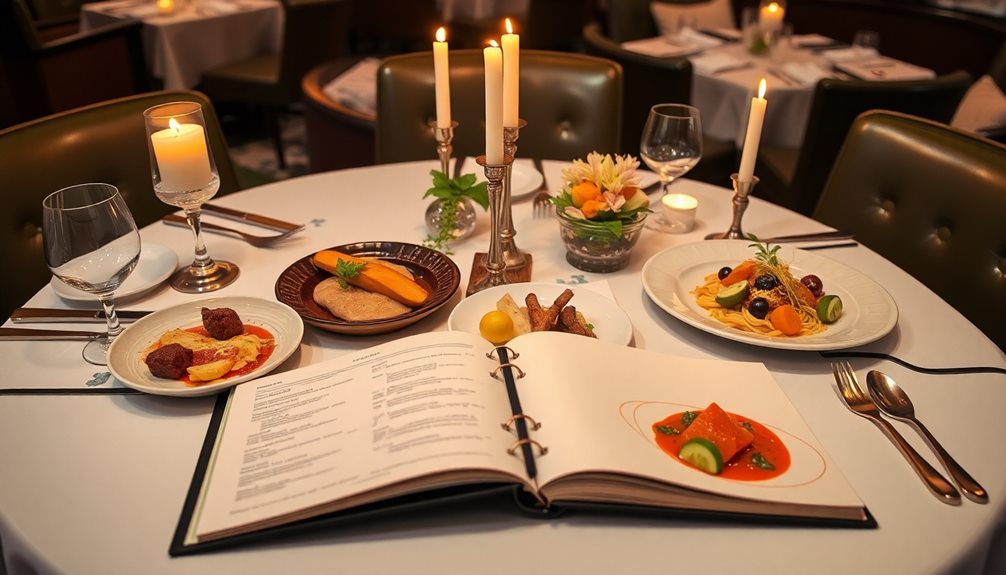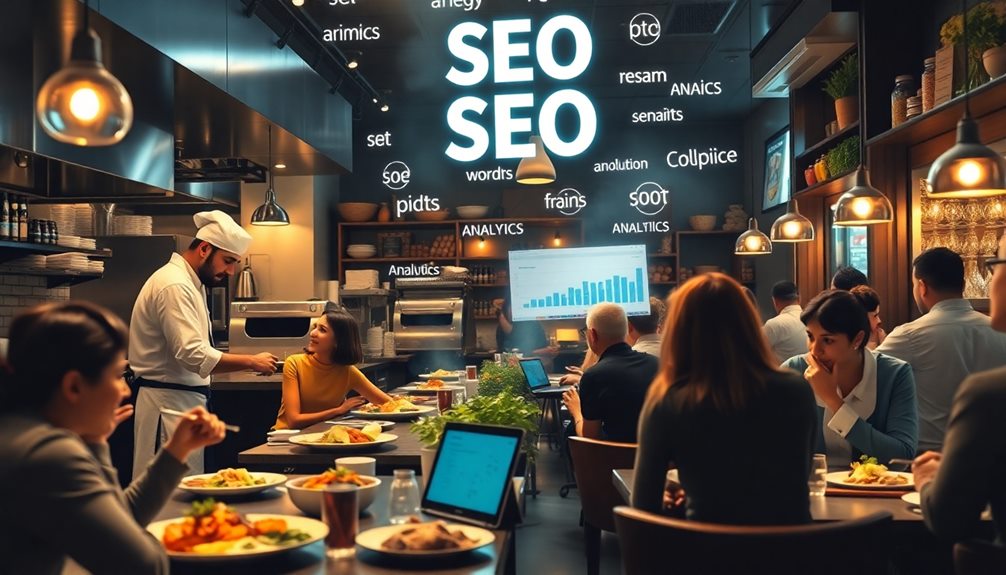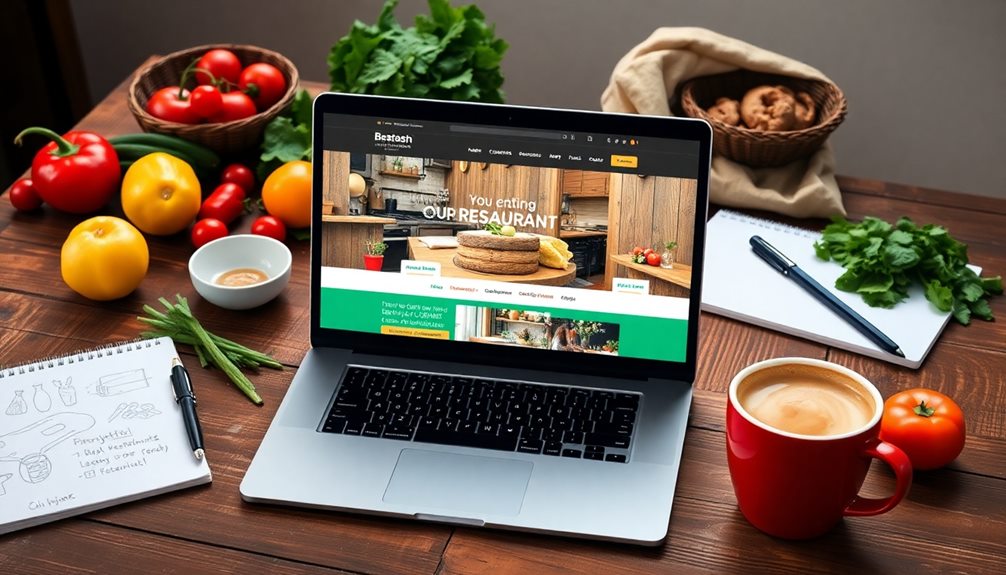To run successful restaurant events, start by defining your objectives and creating a budget. Plan a detailed timeline for promotions and logistics. Tailor your events to your audience by using customer data and analyzing past feedback. Enhance the guest experience through engaging themes and interactive elements. Leverage social media and collaborate with local influencers to promote your events effectively. Popular ideas include cooking classes, trivia nights, and themed brunches, which can attract new clientele and boost sales. By focusing on these strategies, you can create memorable experiences that keep customers coming back for more excitement.
Key Takeaways
- Define clear objectives for each event to align with your restaurant's goals, such as revenue generation or community engagement.
- Create a detailed budget to minimize expenses and ensure profitability during the event.
- Utilize customer data to tailor event themes and enhance guest experiences based on preferences and demographics.
- Leverage social media and local influencers for effective promotion, maximizing reach and engagement with your target audience.
- Analyze past events for successful elements and adapt future events accordingly to improve attendance and satisfaction.
Importance of Restaurant Events
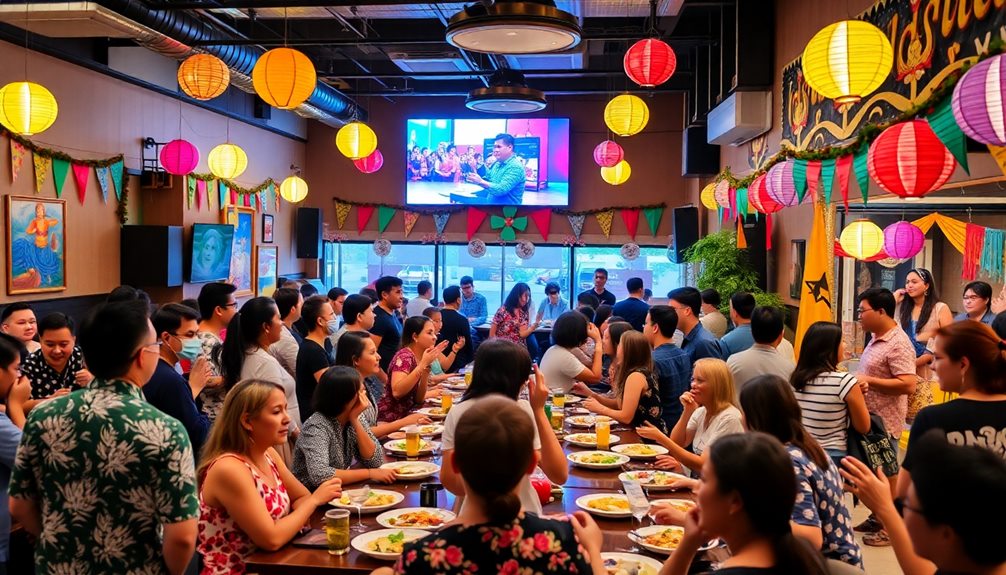
Restaurant events are essential for building customer loyalty and enhancing your brand's visibility in a crowded market. By hosting successful restaurant events, you create memorable experiences that encourage repeat visits, strengthening your customer base.
These events increase your brand awareness, helping you stand out among the 68,000 bars in the US, many of which face high failure rates within a few years. Targeted events not only boost customer engagement but also help you attract new clientele, diversifying your revenue streams during slow business periods.
Engaging with your community through events fosters a positive local reputation and enhances brand recognition. This, in turn, encourages word-of-mouth marketing, which can greatly expand your customer reach.
Regularly organizing themed or signature events showcases your unique offerings and reinforces your restaurant's brand identity. This creates a cohesive experience that resonates with guests, making them more likely to return.
Ultimately, the importance of restaurant events lies in their ability to enhance customer loyalty, increase visibility, and support your marketing efforts, positioning your establishment for long-term success in a competitive landscape.
Embrace the power of events to elevate your restaurant's presence and profitability.
Key Planning Strategies
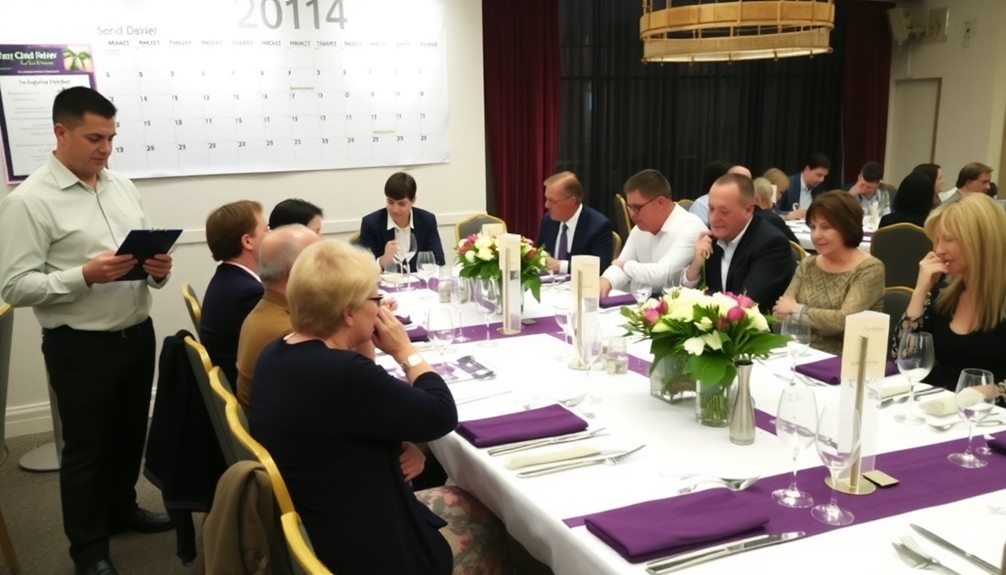
When planning a successful event, it's crucial to start with clear objectives and a well-defined target audience. This guarantees that your event management aligns with customer interests and maximizes engagement.
For instance, incorporating elements like live music dining experiences can considerably enhance the atmosphere and attract a diverse crowd.
Here are some key strategies to keep in mind:
- Define Your Objectives: Clearly outline what you want to achieve, whether it's increasing revenue, building community ties, or showcasing new menu options.
- Create a Thorough Budget: Include all potential costs and focus on minimizing out-of-pocket expenses by utilizing existing resources and local performers.
- Develop a Detailed Timeline: Plan for promotions and logistical arrangements to ensure a smooth event. This careful planning allows you to address any issues well in advance.
- Craft Tailored Marketing Strategies: Use social media and collaborate with local businesses to promote attendance and increase visibility in the community.
As a restaurant owner, focusing on these strategies will greatly enhance the overall experience for your guests at special events.
Tailoring Events to Audience

To create memorable events that resonate with your guests, it's vital to tailor your offerings to their preferences. Start by utilizing customer data, including demographics and spending habits, to craft event themes that align with your audience segments.
Additionally, developing strong communication skills can enhance your interactions with guests, allowing you to gather valuable insights regarding their preferences. Analyze past event attendance and feedback to identify popular formats and preferences, ensuring your future restaurant events hit the mark.
Incorporate seasonal trends and local interests into your event themes. Events that reflect community cultures tend to attract guests more effectively.
Don't hesitate to engage with guests through surveys or social media polls. This input can guide your decisions on desired event types and menu options, leading to a more personalized experience.
Additionally, consider creating private events that cater to specific audience segments, like family-friendly activities or adult-only evenings. These tailored approaches enhance engagement and satisfaction, making guests feel valued.
Marketing and Promotion Techniques
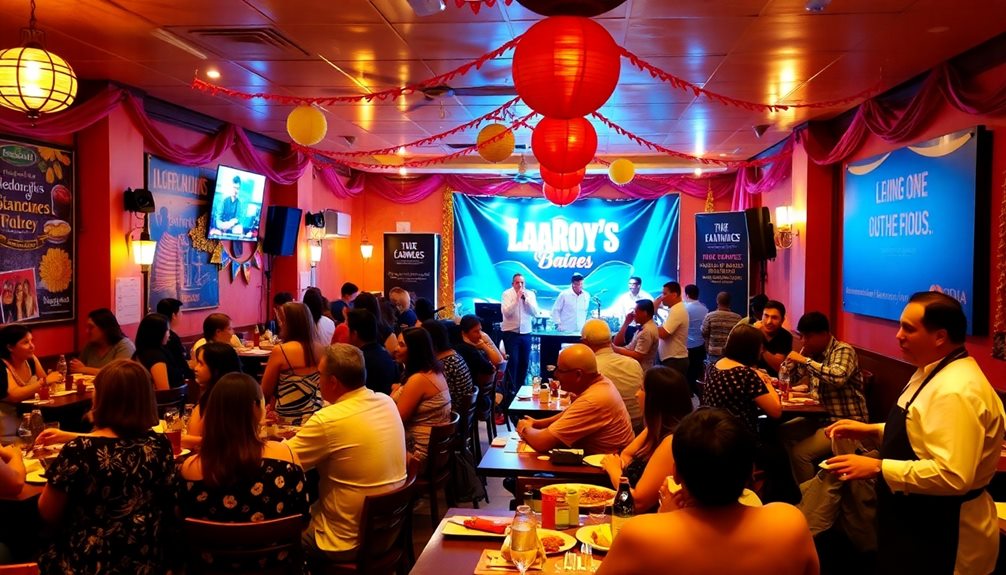
Effective marketing and promotion techniques are essential for driving attendance to your restaurant events. To maximize your reach and draw in new customers, consider these strategies:
1. Leverage Social Media: Use platforms like Instagram and Facebook to create visually appealing posts. With 73% of millennials influenced by social media when deciding where to eat, this can greatly enhance your visibility.
Additionally, incorporating user engagement strategies can help foster a sense of community around your events.
2. Email Marketing Campaigns: Develop targeted email campaigns for your existing customers. Personalized emails can achieve 6 times higher transaction rates than non-personalized ones, ensuring your special menus and events get noticed.
3. Influencer Marketing: Collaborate with local influencers to promote your events. Their established audiences can help spread the word, and studies show influencer marketing yields an average return of $5.78 for every dollar spent.
4. Engaging Content Creation: Share behind-the-scenes videos and engaging content about your event preparations.
Video content is 1200% more likely to be shared than text and images combined, making it an effective way to boost interest.
Popular Event Ideas

Restaurant events can transform your dining space into a vibrant hub of activity, drawing in new patrons and keeping regulars coming back for more.
Consider hosting events like wine or beer tastings to engage customers with unique food and drink experiences. These gatherings allow guests to explore flavors and can boost your beverage sales.
Trivia nights are another great option, attracting groups looking for fun and social interaction. They can lead to increased weeknight sales and build customer loyalty through repeat participation.
Themed brunch events can also be a hit, especially with young professionals. By offering special menu items on weekends, you'll create a lively atmosphere that encourages social dining.
If you want to foster connections, think about organizing cooking classes. This interactive experience not only showcases your chefs but also enhances your restaurant's community presence.
Lastly, don't underestimate the power of live music nights. Hosting talented musicians creates an inviting ambiance, encouraging longer stays and additional orders.
Whether it's a private event or a local performance, make sure your restaurant events resonate with your audience!
Frequently Asked Questions
How Can I Make My Restaurant Run Better?
To make your restaurant run better, focus on tracking expenses, reducing waste, and tailoring offerings to customer preferences. Strengthening your brand identity and utilizing effective marketing strategies can also boost visibility and drive repeat business.
How Do I Boom My Restaurant Business?
To boom your restaurant business, focus on enhancing customer experiences. Implement unique promotions, engage with the community, and adapt your menu based on customer preferences. Utilize technology to streamline operations and boost efficiency.
Which Strategy Is Best for Restaurant?
To boost your restaurant, focus on understanding your customers' preferences. Implement targeted marketing strategies, collaborate with local businesses, and create unique events that showcase your offerings. This'll enhance customer engagement and increase foot traffic.
How Profitable Is a Successful Restaurant?
A successful restaurant can achieve profit margins of 5-10%. By effectively managing operations and enhancing customer engagement, you could increase those margins considerably, potentially reaching 15-20% during peak periods or well-executed events.
Conclusion
Running successful restaurant events isn't rocket science—unless, of course, you're planning a space-themed dinner! By understanding the importance of these events and employing key strategies, you can create memorable experiences that keep patrons coming back. Tailoring your events to your audience and using clever marketing will guarantee you stand out in a crowded market. So, embrace the fun and creativity; after all, who wouldn't want to enjoy a night of "out-of-this-world" cuisine right in their neighborhood?
